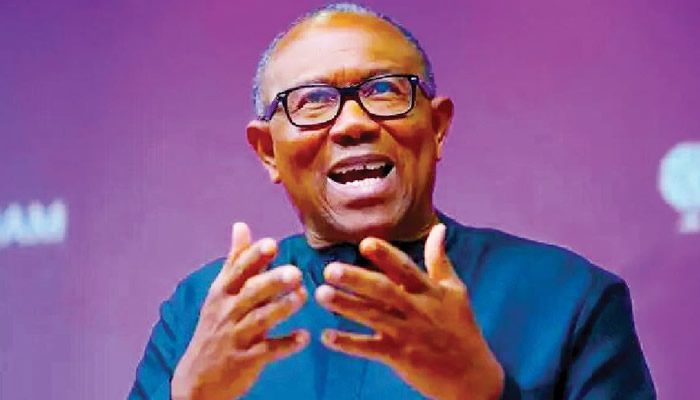In recent political discourse, the All Progressives Congress (APC) has criticized Peter Obi, the 2023 presidential candidate of the Labour Party, labeling him a “habitual complainer.” This criticism emerged prominently in response to Obi’s remarks about the recently concluded Edo State governorship election, where the APC’s Monday Okpebholo was declared the winner. APC National Publicity Secretary, Felix Morka, articulated the party’s stance during an interview, emphasizing that Obi appears perpetually unwilling to accept electoral outcomes that do not favor him or his candidates. Morka’s comments reflect a broader narrative within Nigerian politics, where candidates and their parties often contest election results vehemently, particularly when the outcomes are unfavorable.
Felix Morka’s statements were pointed and critical, suggesting that Obi’s continuous denouncement of election results stems from a pattern of denial that has persisted since the 2023 election. He accused Obi of creating a new agenda focusing on undermining the integrity of the Edo State election results. In Morka’s view, Obi’s allegations lack substantive backing and, therefore, hold no relevance in the political landscape. He called on other party members, such as Akpata and Ighodalo, who have expressed dissatisfaction with the election, to pursue their grievances through the judicial system instead of airing unverified claims publicly. Morka emphasized that true discourse and analysis need to be grounded in evidence rather than mere complaints.
Following the announcement of the Edo election results, Obi took to publicly criticize the electoral process, describing it as a “blatant example of state capture.” He argued that such practices not only undermine the democratic framework of Nigeria but also pose significant dangers for the country’s political future. Obi’s concerns reflect a deep unease with processes that he perceives as undermining legitimate democratic practices, urging authorities to address these critical issues. In his arguments, Obi raises the stakes, suggesting that flawed electoral methods could lead to detrimental consequences for Nigerian democracy and governance.
Morka’s remarks during his interview with Arise TV reiterate a common theme in political rhetoric, where accusing opponents of similar behaviors serves as both a defense mechanism and a strategy to delegitimize their claims. The APC’s portrayal of Obi as a “serial complainer” attempts to frame him as someone who is out of touch with electoral realities, undermining his credibility as a leader who genuinely seeks to reform and improve Nigeria’s political landscape. This kind of discourse often shapes public perception, potentially swaying voters as political parties defend their positions against allegations of misconduct.
The back-and-forth between the APC and Obi illustrates the contentious nature of Nigerian politics, where allegations of electoral malpractice and accusations of denialism frequently surface. Such tensions can create divisions not only within political parties but also among the electorate, further complicating the already intricate dynamics of governance in Nigeria. As opposition figures like Obi continue to voice their concerns over electoral integrity, the ruling party’s response often seeks to emphasize the importance of acceptance and moving forward, while simultaneously challenging the credibility of those raising concerns.
Ultimately, the ongoing dialogue between the APC and Peter Obi sheds light on the broader issues of electoral integrity and political accountability in Nigeria. With allegations of state capture and flawed electoral processes being at the forefront, it becomes imperative for political discourse to pivot towards constructive solutions rather than mere accusations. For democracy to flourish, it is essential that all parties involved, from candidates to governing bodies, engage in transparent, evidence-based discussions about electoral reforms and governance practices, fostering an environment where the electorate can trust both the electoral process and its outcomes.


